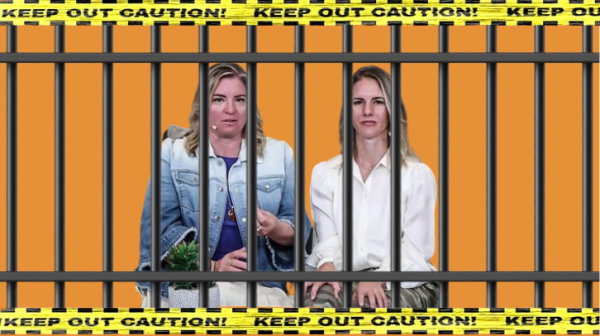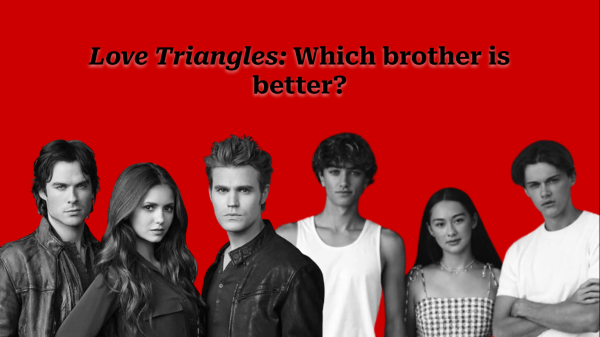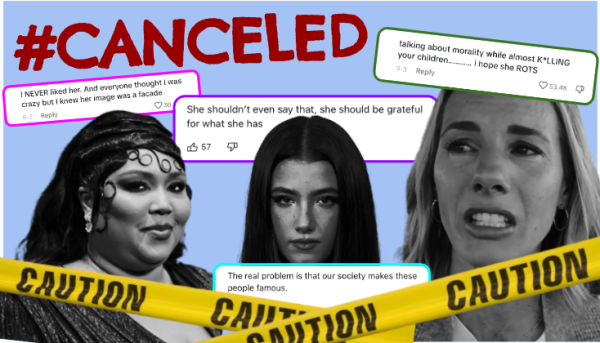Facebook Live: Viral birth video warns of TMI to come
May 19, 2016
You’re scrolling through your news feed. You ‘like’ your cousin’s prom picture. You ‘love’ your mom’s status about how proud she is of her kids. You even go out of your way to read the article your best friend’s mom shared about increasing college tuition prices.
And then you see it.
Like a horrible car accident on the side of the road, you don’t want to see it, but you just can’t force yourself to look away.
There, right on your computer screen, you are bombarded by a live-streamed trending video of a woman in labor.
Father Fakamalo Kihe Eiki watched his wife give birth to their son May 17, and the Facebook world watched with him. The post got over 50,000 views in fewer than 24 hours.
The video was shared via Facebook Live, the latest feature that allows users to broadcast from a smartphone in real time to followers browsing their feed at that moment or others who have subscribed to broadcasts.
In his own post, Facebook creator Mark Zuckerburg shared, “Live is like having a TV camera in your pocket. Anyone with a phone now has the power to broadcast to anyone in the world.”
Without a doubt, live broadcasting is an incredible asset in the world of social media and news. As a journalism student, I can see the potential for citizen journalists around the world to share history-making moments, but when does the moment cross into dangerous liability? Facebook Live is dangerous, even for believers in freedom of speech.
Would Eiki have felt the same pride in his video if something horrible had happened during the labor? Accidents happen, and they happen often.
Many, especially teenagers, may feel think of social media as an old friend by now– something that they know like the back of their hand– but in the grand scheme of things, social media is practically as young as Eiki’s newborn son.
The most primitive form of social media, email, didn’t originate until the 1960’s, and blogging sites like MySpace and Linked in didn’t come until the early 2000’s. Facebook and Twitter were introduced in 2006. That means the Facebook, a site that to some people may feel like ‘a thing of the past,’ is only 10 years old.
Sociology teacher Darren Hornbeck said that the world of social networking and social media have irreversibly changed our social norms, but the world is still figuring out just what those changes are.
“We don’t know what’s rude and what’s not,” said Hornbeck. “No generation has had technology like phones, laptops, tablets, etc. from cradle to grave, so sociologists can’t study the effects. We have no idea the capability of these things that we’re spending so much time on. Every time we even begin to figure it out, it evolves.”
Technology isn’t the only thing that evolves. Psychology teacher Tony Miller believes the technological generation is changing parallel to the devices we use.
“I don’t know if we’re all just desperate for some kind of attention or what. These things have replaced so much in our lives already. I really believe they’re changing the way human beings evolve, and whether that’s good or bad, I don’t know,” said Miller.
The birthing video got mixed responses. Some viewers cheered Eiki’s “brave” and “strong” partner, with one thanking them both for “sharing this [with] the WORLD!” Others planned to “quit the internet” and felt like sharing on the web has gotten “out of hand.”
I was disturbed. The miracle of birth is, somehow, a lot less miraculous.
I can recall giving many a ferocious eye roll as my mom scolded my slightly inappropriate or just plain stupid posts on Facebook and Twitter.
“You don’t need to broadcast everything, Olivia. Your generation just doesn’t get it. You have to think long and hard before you post.”
I’m a little freaked out, and a little proud, that this article sounds a lot like my mother’s wise voice.
While it offers incredible honesty and vantage points, the idea of live-streaming just increases the risk of misuse of social media–I can see a lot more harm being done than good.
Do I think the birthing video was necessarily misuse? No, I don’t, but I did feel uncomfortable because I was witnessing something that is very intimate. I think that a social norm that society has not yet set was broken.












